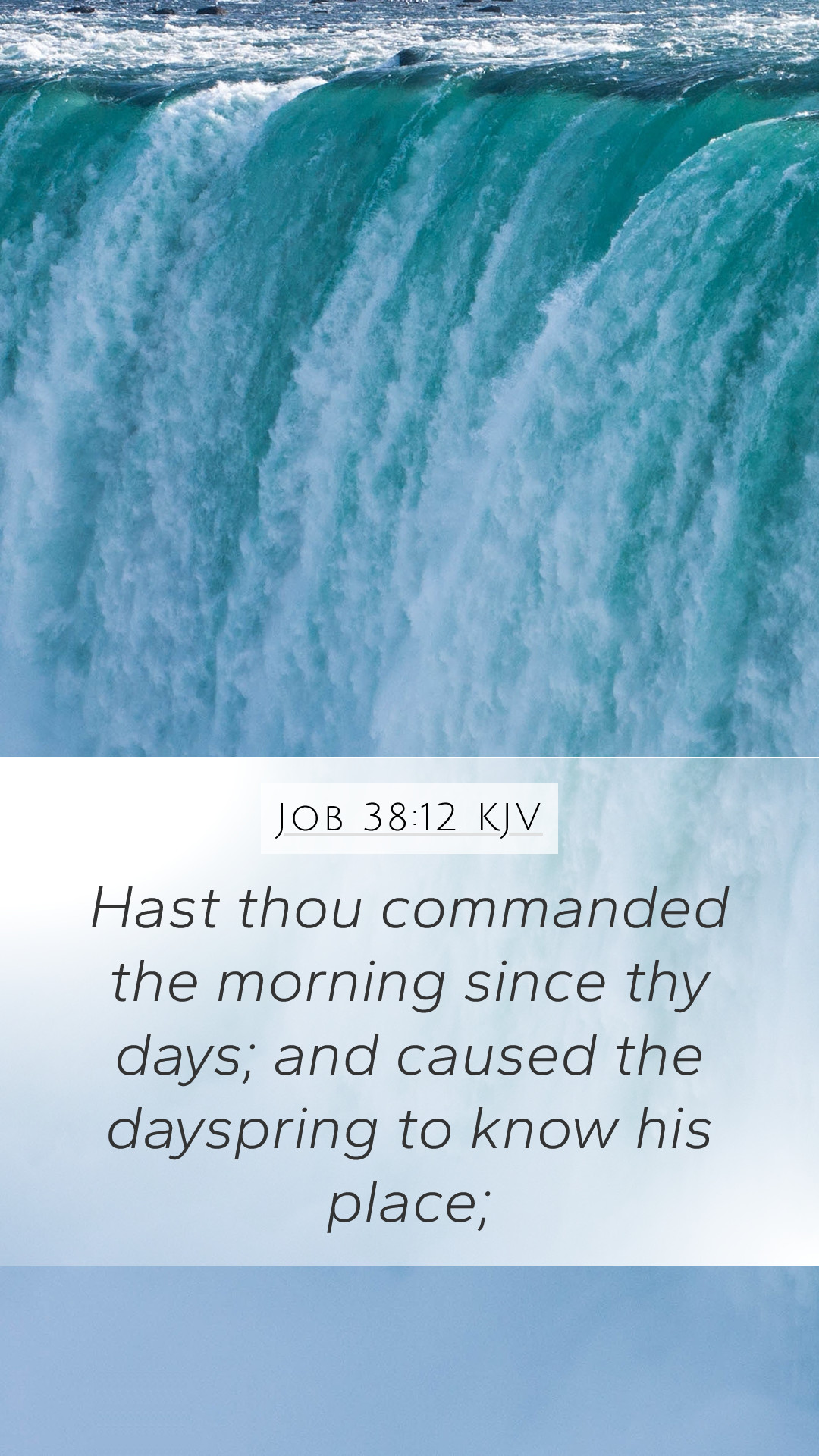Understanding Job 38:12
Verse: "Hast thou commanded the morning since thy days; and caused the dayspring to know his place?" (Job 38:12)
This verse forms part of God's response to Job amid his suffering and inquiries about the justice of God’s governance in the world. The verse challenges Job's understanding of creation and the natural order, emphasizing human limitations in comparison to divine omnipotence.
Bible Verse Meanings
The meaning of this Bible verse revolves around God's rhetorical question to Job, illustrating His power over creation. The morning is depicted as something commanded by God, highlighting His sovereignty and the intricate workings of the universe that humans can neither comprehend nor control.
Bible Verse Interpretations
- Matthew Henry's Commentary:
Henry emphasizes that the question posed by God serves to remind Job of his limited understanding and the majesty of God’s creation. It positions God's authority as the creator who orchestrates the natural world and its phenomena, like the dawn.
- Albert Barnes' Commentary:
Barnes interprets the phrasing "Hast thou commanded the morning" as a divine challenge, stressing that only God can initiate natural events such as the dawn. It signifies the idea that God's dominion encompasses the very mechanics of time and light.
- Adam Clarke's Commentary:
Clarke reflects on the metaphor of the morning and the dayspring, illustrating how God has preordained and confines their movements. This challenges Job to recognize that he lacks the power to influence such fundamental aspects of existence.
Scripture Analysis
In analyzing this Bible verse commentary, it becomes clear that Job’s questions about suffering and justice are met with reminders of God's supreme authority. God's actions are beyond human understanding, a theme recurrent in the text of Job.
Biblical Exegesis
This verse serves as a pivotal point in the book of Job, linking the themes of divine control with the experiences of humanity. It showcases the historical context of Job’s suffering as he grapples with the nature of righteousness and divine retribution.
Key Themes:
- Divine Sovereignty: The verse exemplifies God's unfathomable power over creation.
- Human Limitation: It highlights Job’s limited perspective compared to God's eternal wisdom.
- Creation’s Order: The natural order, represented by the dawn, is under God's command.
Bible Study Insights
For those engaged in Bible study groups or seeking to deepen their understanding through online Bible study, this verse provides a profound reflection on the nature of suffering and the questions believers often face regarding God's justice and presence in their struggles.
Application of the Verse
When contemplating how to interpret Bible verses like Job 38:12, consider its implications in everyday life:
- Trust in God's Plan: Recognizing that God governs all can instill confidence amidst trials.
- Inquiring with Humility: Approach God with reverence, acknowledging our limited understanding.
- Reflecting on Creation: Meditate on the beauty and order of God's creation as a manifestation of His greatness.
Cross References
- Psalm 104:19 – "He appointed the moon for seasons: the sun knoweth his going down."
- Isaiah 40:26 – "Lift up your eyes on high, and behold who hath created these things."
- Proverbs 8:22-30 – Wisdom's personification as present at creation illustrates God's control over the beginnings of the world.
Conclusion
The examination of Job 38:12 provides profound Bible study insights into understanding Scripture. It teaches believers about the grandeur of God's creation and their position within it, encouraging a posture of humility and trust in the Creator. For anyone seeking meaning of Bible verses or Bible study resources, this verse serves as a reminder of God's enduring authority and care over the cosmos.


